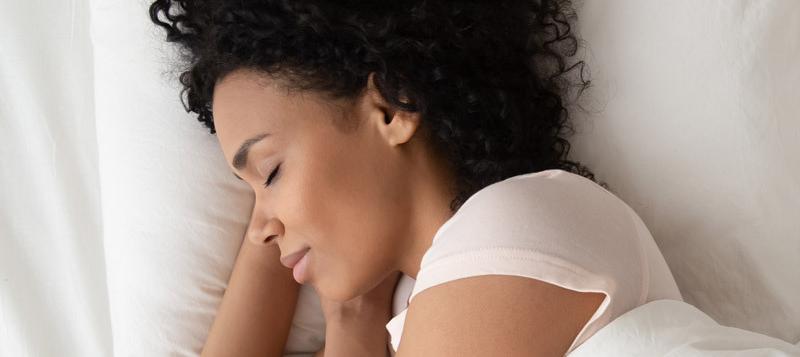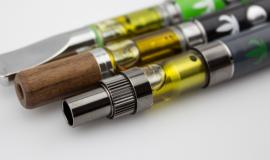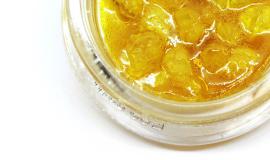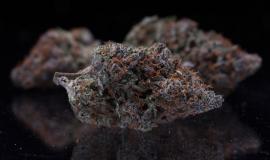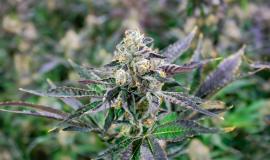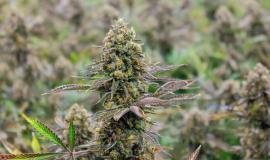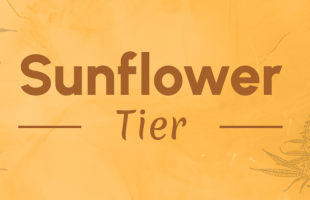Cannabis and Sleep: Can Marijuana Improve Your Sleep Quality?
Discover the impact of cannabis on sleep quality, from altering REM cycles to choosing the right products.
What Happens to Your Brain When You Sleep High?
Sleeping while high can alter your sleep architecture — the structure of your sleep cycle. Cannabis, particularly strains high in THC, may potentially affect how much time you spend in REM (Rapid Eye Movement) sleep, the stage associated with vivid dreaming. This change might explain why some report fewer dreams. However, it's crucial to approach these effects with a nuanced understanding, as individual experiences can vary widely.
Indica or Sativa for Insomnia: Which is Better?
The Indica vs. Sativa debate is a hot topic in the cannabis community, especially when it comes to sleep. The terms themselves are not as clear cut as most think, but for our intents and purposes we will consider the commonly used understanding of indica vs sativa: generally, Indica strains are favored for their sedative effects, which may potentially help those with insomnia. On the other hand, Sativa strains tend to provide more energizing effects, which might not be ideal for bedtime use. Remember, the best choice depends on your individual response to these strains.
Does CBD Affect REM Sleep?
CBD, a non-psychoactive compound in cannabis, is garnering attention for its potential to improve sleep quality. Some research suggests CBD may help manage anxiety and pain, common culprits behind sleep disturbances. Its impact on REM sleep is still under investigation, but the compound's overall effects on sleep can't be overlooked.
Finding the Best Edible for Sleep
Edibles, especially sleep edibles gummies, have become a popular choice for those looking to drift off without smoking. The market offers various products designed to promote relaxation and sleep, often combining THC with CBD and sometimes melatonin. The key is to start with a low dose and give it time, as edibles take longer to kick in compared to other consumption methods - anywhere from 15 minutes to 2 hours. Also, keep in mind that edibles offer prolonged effects, especially the high dosage ones. These may last as long as 8 hours.
The Most Sedating Terpene
Terpenes, the aromatic compounds in cannabis, play a significant role in its effects. When it comes to promoting sleep, Myrcene stands out as potentially the most sedating terpene. Found in many Indica strains, Myrcene may help enhance THC's effects, contributing to a deeper sleep.
A Fun Fact: Does Marijuana Increase Melatonin Production?
While research is ongoing, some studies suggest that THC may increase melatonin levels, the hormone responsible for regulating sleep-wake cycles. This could partially explain why some feel more inclined to sleep after cannabis use.
Dream a Little Dream...Or Not?
Interestingly, cannabis use might affect dreams. Since THC can reduce the amount of time spent in REM sleep, some users report fewer dreams. However, upon stopping cannabis use, a phenomenon known as "REM rebound" can occur, leading to more vivid and frequent dreams.
Night Vision and Cannabis: A Surprising Connection
In a lighter vein, historical anecdotes and preliminary studies suggest that cannabis might improve night vision. While the mechanism behind this is not fully understood, it's a curious aspect of cannabis lore that continues to intrigue researchers and enthusiasts alike.
Conclusion
Cannabis's relationship with sleep is complex and highly individualized. While it may offer potential benefits for those struggling with sleep issues, it's important to approach its use with mindfulness and informed caution. Always consider starting with low doses, especially with edibles, and consult with a healthcare professional to ensure it's a safe option for you. As research evolves, we'll likely uncover even more about how this ancient plant interacts with one of our most basic human needs — sleep.
Health Disclaimer: The information provided in this article is for educational purposes only and should not be taken as medical advice. Always consult with a qualified healthcare provider before using cannabis, particularly if you have pre-existing conditions or are taking medication.


